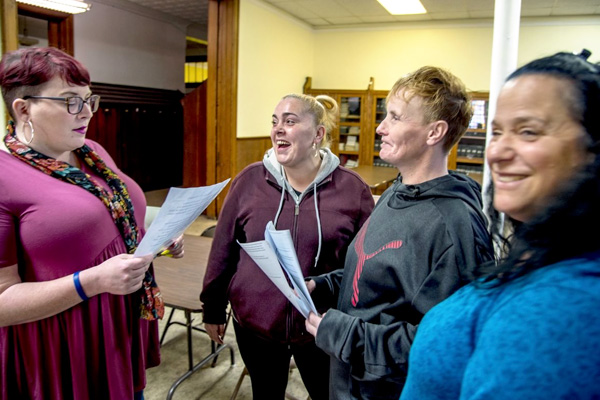Sweet and Sour Bullshit –
MAY 10, 2018 – “Methadone is stopping me from putting a needle in my body,” she said. “It doesn’t get you high. It stops the cravings, and even if you do use you’re not going to be able to feel it so it’s a waste of money.” (Someone on methadone likely won’t feel the effects of a single dose of heroin; but multiple doses could lead to a fatal overdose, one reason the drugs should never be combined.) For all the members’ success, though, a problem remains: finding sponsors, people in long-term recovery who can mentor others, a key ingredient in 12-step groups. “It’s frustrating because I’m someone who’s doing well in recovery, but I should have someone with me in that journey,” said McAllister. Without a sponsor herself, however, she doesn’t believe that she can sponsor others, though several women have asked.
Walking a tightrope
Historically, Americans have viewed and treated substance use disorders as moral failings and criminal issues. Thinking of addiction as a medical condition is a relatively new idea. “For 50 years the response to people with addiction was to incarcerate them, and we still do that,” said Yngvild Olsen, secretary for the American Society of Addiction Medicine. “So the idea that this is now a disease means not only do we have to educate the public, but we also have to educate the people who have the condition.”



